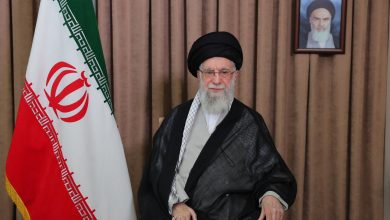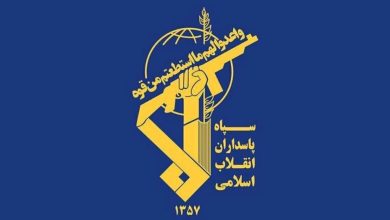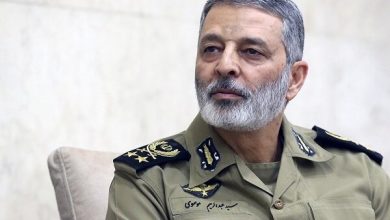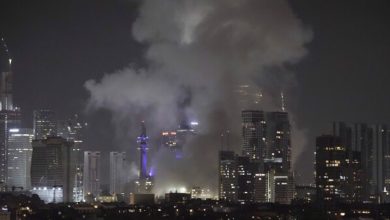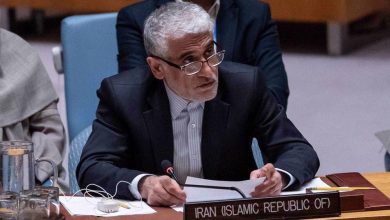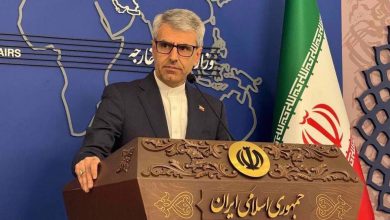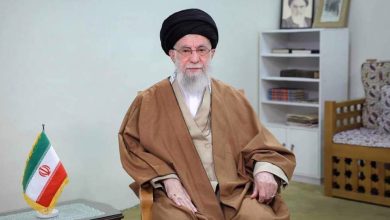HAJJ MESSAGE: Imam urges Muslim Leaders to Halt Aid to Zionist Regime in Hajj Address
Ayatollah Seyyed Ali Khamenei, the leader of Iran's Islamic Ummah and Oppressed, has urged Muslim nations to halt all forms of assistance to Israel and to take measures to stop it from carrying out further acts of violence against Palestinians in the Gaza Strip.
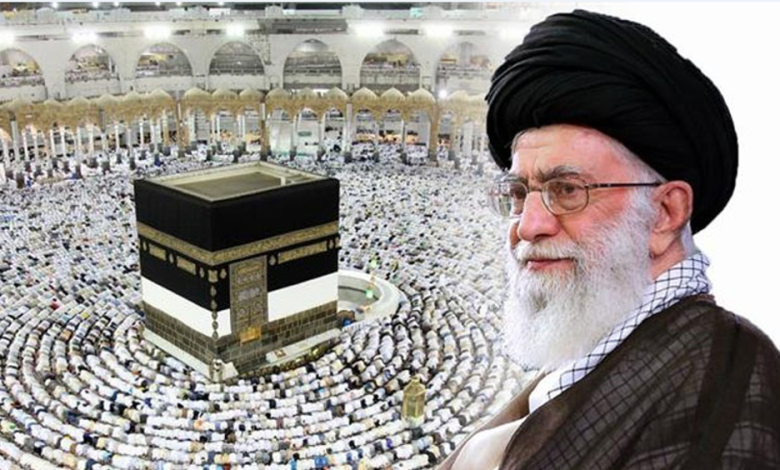
In his annual Hajj message released on Thursday, the Leader urged the millions of Muslim pilgrims gathered in Mecca for their religious observances to press their governments to address the ongoing crises in Gaza and the broader West Asia region.
Ayatollah Khamenei has issued a stern warning, stating that the regime currently occupying Gaza has escalated the situation to an unprecedented level of tragedy, marked by horrifying cruelty and unparalleled savagery.
The Leader asserted that the United States plays a clear role as an “accomplice” in the actions of the Zionist regime. He called on America’s regional allies and other Muslim countries to respond to the Holy Qur’an’s call to protect the oppressed and to pressure the US to cease its repressive activities.
Ayatollah Khamenei praised the “miraculous” resilience demonstrated by the people of Gaza, emphasizing that this steadfastness has elevated the Palestinian cause to a primary concern for the Muslim world and freedom-loving individuals globally.
The Leader emphasized the urgency of taking action to support the oppressed population of Gaza.
Ayatollah Khamenei called on influential public figures and individuals with social prominence to enhance public awareness about the Palestinian situation.
Here is the complete message from the Leader to the pilgrims undertaking the 2025 Hajj:
All praise is due to Allah, the Lord of all worlds. Peace and blessings be upon the esteemed Muhammad al-Mustafa, his pure family, his chosen companions, and all who follow them in righteousness until the Day of Judgment.
Hajj represents the deep yearning of the faithful, an auspicious occasion for those filled with anticipation, and offers spiritual nourishment for the fortunate. When performed with an understanding of its profound spiritual significance, Hajj serves as a healing force for the pressing challenges faced by the Islamic Ummah and humanity at large.
Hajj stands apart from journeys undertaken for trade, tourism, or other purposes, where acts of worship or good deeds may incidentally occur.
Hajj represents a journey from everyday life to an envisioned ideal existence, characterized by a tawhidi approach. This spiritual progression involves the ongoing tawaf around the central Axis of Truth, the Ka’aba, the persistent sa’y between the sacred hills of Safa and Marwah, and the continuous rami of the Jamarat, symbolizing the rejection of evil forces. Participants engage in wuquf, a period of reflection with dhikr and prayers, while also nurturing the less fortunate and travelers. It is a unifying experience that transcends differences in color, race, language, and geography, celebrating the equality of all people.
Throughout history, individuals stand poised to serve, seek solace in faith, and uphold the banner of defending truth. These enduring principles remain its foundational elements.
The Hajj ritual encapsulates symbolic representations of life, acquainting pilgrims with these symbols and extending an invitation for them to engage with these experiences.
This invitation warrants attention. Individuals are urged to open their hearts and eyes to both the external and internal realms. It is essential to learn and maintain determination to implement these lessons actively.
Individuals are encouraged to advance along this path in line with their abilities. However, scholars, intellectuals, those holding political authority, and individuals of social influence are expected to contribute more significantly than others.
The Islamic community faces an urgent need to heed these lessons, particularly as it enters the second Hajj season amidst ongoing crises in Gaza and West Asia. The Israeli government, occupying Palestinian territories, has escalated the situation in Gaza to unprecedented levels of crisis with actions widely condemned for their severity and brutality.
Reports indicate that Palestinian children are facing mortal dangers not only from military conflict but also from severe shortages of essential resources such as water and food. The number of families mourning the loss of their young ones, as well as fathers and mothers, continues to escalate daily. The international community faces mounting pressure to address this intensifying humanitarian crisis.
Islamic governments bear the primary responsibility to take decisive action on this matter, and it is incumbent upon the citizens to insist on such action from their leaders. Despite any political differences that may exist among Muslim governments on various issues, these should not act as barriers to reaching a consensus and collaborating concerning the dire situation in Gaza. Their differences must not hinder them from standing up for some of the most oppressed people in the world today.
Muslim governments are urged to halt any support to the Zionist regime and prevent further actions perceived as barbaric in Gaza.
The United States has been strongly criticized for its association with the actions of the Zionist regime, with allegations of complicity in what is described as criminal activities. It is urged that America’s allies, both within this region and across other Islamic territories, should heed the Qur’anic call to defend the oppressed. Pressure is being called to bear on the US government to cease its perceived arrogant and oppressive conduct. The practice of bara’at, or renunciation of idolaters, during Hajj is viewed as part of this broader effort.
The remarkable resilience demonstrated by the residents of Gaza has brought the Palestinian cause to the forefront of priorities for the Islamic community and advocates of freedom globally. This critical moment offers an opportunity that should be harnessed to extend support and assistance to this embattled populace.
Amid attempts by influential forces and allies of the Zionist regime to suppress the identity and legacy of Palestine, the actions and policies of the regime’s leadership have ironically led to a situation where the Palestinian cause is more prominent than ever. Public discontent towards the Zionist regime and its backers has intensified significantly. This presents a crucial opportunity for the Islamic world to act.
Prominent public figures and influential individuals are urged to elevate awareness and sensitivity concerning the Palestinian issue, while significantly amplifying demands for action.
Pilgrims are encouraged to take advantage of the Hajj to offer prayers and seek divine assistance, while also imploring for triumph over Zionist oppressors and their allies.
Peace and salutations are extended to the Noble Messenger of Islam, his Pure Progeny, and Hazrat Mahdi, regarded as the remaining vestige of Allah on earth, with hopes for an expedited reappearance.
Blessings, mercy, and greetings be upon you.

